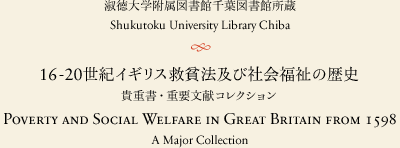 |
 |
 |
 |
1775
GILBERT'S BILL |
054. [GILBERT, Thomas]. A Bill, intended to be offered to Parliament, for the
better relief and employment of the Poor, within that part of Great Britain called
England. [London] 1775,. [2],viii,75,[1]p. Rebound in boards, cloth spine. A very
nice copy.
HIGGS 6450. GOLDSMITHS 11350. KRESS 7107. NNC, MH-BA, CtY, InU only in
NUC.
The Bill contains an elaborate and carefully worked out proposal for the grouping of
parishes etc. in the administration of the provision for the Poor.
Thomas Gilbert, (1720-1798) , Poor-Law reformer. In 1765 he got through the House
of Commons a bill for grouping parishes for poor-law purposes in large districts but it
was narrowly defeated by the Lords. In 1776 he got through parliament a Bill
requiring overseers to make returns of the sums raised in Poor Rates. This measure
provided what the Webbs describe as "our first firm ground" in assessing the actual
cost of Poor Relief. In 1776 a committee of the House of Commons reported on the
condition of the workhouses and almshouses, and Gilbert, after having worked at the
subject energetically for many years, introduced into the commons three bills in 1782.
Beatrice and Sidney Webb state that Gilbert's Act of 1782, (22 George III.c.83) was
"...the first fundamental change in the general statute law relating to poor relief for
more than a century and a half. The key provisions of this Act were as follows: (1) To
enable parishes to combine in larger unions for the administration of the relief of the
Poor. (2) To get the administration as far as possible out of the hands of the annually
elected unpaid Overseers. (The role of the Overseers had been sufficiently exposed by
Richard Burn, Robert Potter and others.) (3) To exclude the able-bodied from the
Workhouse. The broad purpose of the Act was the establishment by unions of parishes
of reformed workhouses where the aged, the sick and the infirm together with their
dependant children might be humanely provided for. The statutory exclusion of the
able-bodied from the sixty-seven new Gilbert Union Workhouses was a wise provision
but it was to have far reaching and perhaps unforeseen consequences. Outdoor Relief
became the only assistance which the Magistrates could order for the benefit of the
able bodied. In the years of acute distress and high prices that marked the end of the
eighteenth century this inevitably resulted in a wholescale resort to an Allowance
System, or support in aid of wages, the very system which, attracting the opposition
of Malthus and others, eventually resulted in the Poor Law Amendment Act of 1834
and the abolition of the Old Poor Law itself.
|
 |
|
 |
 |
 |
 |
|



